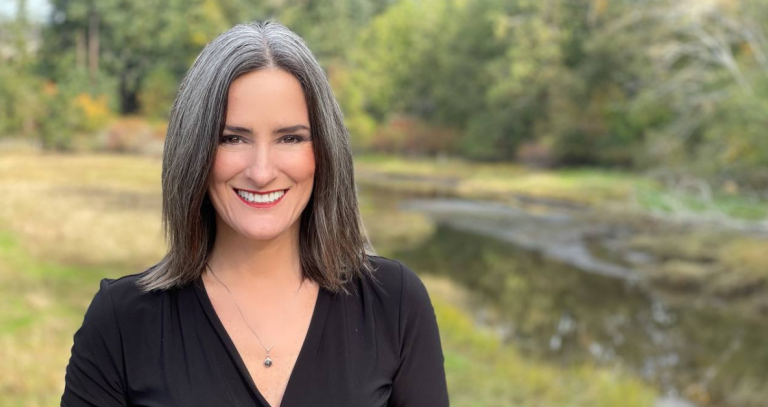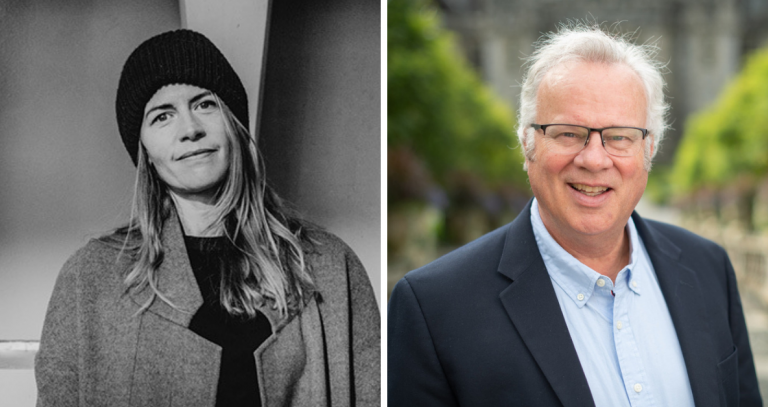Program description
As an experienced organizational leader, you have a lot to share. Becoming an executive coach gives you a way to meaningfully share your energy, passion and experience with others in, and outside, your industry.
The Graduate Certificate in Executive Coaching program lets you build the skills, knowledge and practical tools to effectively coach individuals and organizations towards superior performance.
You’ll learn how you, as a coach, can inspire the best in others, across a range of professional contexts.
You’ll learn tools for accountability, communication and managing processes. And you’ll learn to understand what helps, and hinders, accomplishment. Finally, you’ll practice coaching others toward their personal and professional development goals.
You can build from here
When you successfully complete this program you have career advancing options:
- You can take your skills further with our Graduate Certificate in Advanced Coaching Practices or Graduate Certificate in Values-Based Leadership.
- You can also complete this program as a specialization option for our MBA in Executive Management.
- If you have already completed this program, you can transfer all credits toward our MA in Executive & Organizational Coaching, MBA, MGM, MA in Tourism Management and MA in Interdisciplinary Studies programs.
Earn professional credentials
This program counts as an Accredited Coach Training Program (ACTP) through the International Coach Federation (ICF). Upon successful completion, graduates receive 125 Professional Certified Coach (PCC) learning hours and receive the Certified Executive Coach designation. Graduates are encouraged to pursue professional certification through ICF.
Program outcomes
Once you have completed this program, you'll have skills in coaching, listening and communication that will allow you to build a practice as an executive coach for leaders in a range of sectors.
Program delivery
This program is delivered through a blend of online learning and on-campus residencies.
Online learning
Online courses consist of assigned readings, synchronous or asynchronous lectures, interactive discussions, and individual and team assignments.
You’re expected to meet deadlines and contribute meaningfully to your class. Your contributions are a big part of everyone’s learning.
You’ll take one online course for a period of two weeks. After your first residency, you'll take two consecutive online courses for 13 weeks each. Each online course requires approximately 15-20 hours of work per week.
You'll start your program with a non-credit, but required, course about academic integrity.
Residencies
This blended program has two residencies. The first is six days long. The second is three days long.
Residencies are intensive and immersive. Many students say this time together is the highlight of their program.
During your residency, you can expect to:
- attend classes full time (e.g., Monday to Friday from 8:30 a.m. to 4:30 p.m.)
- complete homework and individual and team assignments outside of class hours
- take part in extracurricular activities
Courses
Faculty
Transfer agreements
Refine results
Admission to this program is assessed on a case-by-case basis, taking into account all aspects of the applicant's work and life experience, volunteer and community activities, practical experience, related training and formal education.
Standard admission
- Completion of either an undergraduate four-year (or comparable) degree or a graduate degree in a related field from a recognized post-secondary institution.
- Normally, at least three years of relevant full-time work experience.
Flexible admission
- To be considered for flexible admission, applicants would normally require at least five years of extensive relevant work experience and some post-secondary education.
English language proficiency
- If English is not your primary language, please review our English language requirements.
All applications to this program require submission of the following information and supporting documents before your file can be assessed for admission:
Application form
In order to apply online, you will be required to create a log-in account using your email address. You will be required to list all credit courses and/or programs you have completed or are currently enrolled in. An application fee will be required. If your application fees are being paid by a third party, review sponsored student information. Once submitted, you may check the status of your application at any time.
Missed your application deadline? While we can’t make any guarantees, we may be able to accommodate late applications if there's still space and enough time to process. If you're interested in an intake that is now closed to applications, apply for the next available intake and email Admissions with your preferred start date. Make sure you’re prepared to submit your program's required documents right away. We can't make an admissions decision without them.
Official transcripts
In accordance with RRU's admissions policy and practices, applicants are required to submit official transcripts from all post-secondary (higher education) institutions currently or previously attended, though exceptions may apply for some Graduate Certificate in Executive Coaching applicants as outlined below:
- All applicants must declare all post-secondary studies (courses, programs, transfer credit, etc.) in their application.
- As part of the application process, applicants anticipating acceptance by standard admission will be required to provide an official transcript for the highest level, most relevant and/or most recent degree credential(s). Whenever possible, applicants are also encouraged to provide unofficial (or official) transcripts from all other institutions currently or previously attended. Additional documents may be requested at any time during the application process. Additionally, upon acceptance Admissions will determine which, if any, additional transcripts or documents will be required, and these requirements may be noted as a condition of admission.
- As part of the application process, applicants anticipating consideration under flexible admission must submit all official transcripts for all institutions currently or previously attended.
In all cases, applicants are responsible for arranging for the submission of official transcripts. Transcripts are considered official only if submitted directly by the Registrar or other recognized authority of the providing institution in the institution's original, sealed envelope. If the envelope has been opened, the transcripts are no longer official and new (official) transcripts will be required to complete your application.
Transcripts are not required for non-credit programs or courses, though some programs may require proof of professional certifications or designations.
All international transcripts or credentials are subject to an international transcript and/or credential evaluation.
Personal statement
The personal statement should be approximately one page in length and outline your motivation for seeking entrance to the program. The statement should address the topic of how the Graduate Certificate program that you are applying for will contribute to your future career. Relate this to who you are, what you feel you will gain from the program, and the strengths you feel you could bring to the program.
Résumé
A detailed résumé provides the Admissions Office with as much information about your work and life experiences as possible. We are interested in knowing where you have worked, for how long, and what you were responsible for in the positions you held. Provide as much information as possible, with special attention to the past ten years of your career. We would also like to see any professional development courses, volunteer positions, professional certification, association memberships or international experience that you may have acquired.
Two reference letters
These documents can be written in a variety of formats. In essence, we expect the writer to confirm that you are a suitable candidate for the program, explain why s/he believes you will succeed in such a program, and describe how the program will benefit you. The context in which the referee has come to know you should also be mentioned.
If applicable:
- Applicants declaring permanent resident or Convention Refugee status in Canada must submit a copy of their Permanent Resident Card (PR card) along with their application.
- Transcript evaluation fee or credential evaluation report, if submitting international transcripts.
- An official English language proficiency score report or other evidence of proficiency if English is not your primary language.
- Other information or documents as may be requested to determine your eligibility.
For information on how and where to send your supporting documents, please refer to the document submission guidelines.





